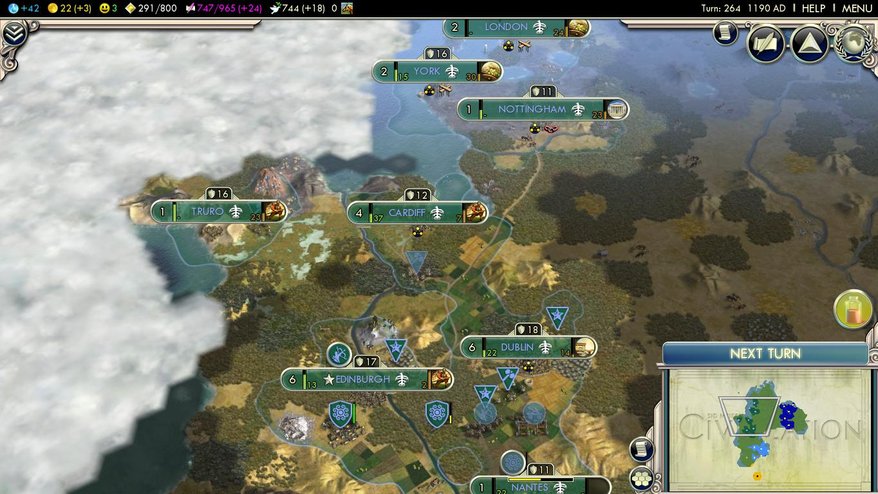
Decline
Over the next 200 years, the Celts would face continuing poverty, outstripped even further by the technological advances of larger nations. Tensions rose as the Pictish senators called for a march on Paris in retribution for the Orleanian incursions, but the crown would not stand for it.
By the 14th Century, Sweden and France had ceased fighting each other long enough to turn their sights on Celtica. The French still coveted the fertile, Celtic lands on their borders, and an increasingly corrupt Swedish crown sought new conquest, heedless of any justification.
In 1370, the Swedes invaded Celtica and burned Dublin, her second oldest and largest city, to the ground. Though Edinburgh would hold fast and the Swedes would be repelled, the Republic never recovered from the loss. The homeland and Celtic Britain became increasingly fractured, and while the Republic would hold together for some time after, it had missed its chance at becoming a major world power.
With a heavy heart, I had to call it on this game. The Swedes randomly declaring war on me was the straw that broke the tattooed forest warrior's back. What I did to make the AI hate me so much, I couldn't say. But on top of being far behind in tech and economy thanks to putting too many eggs in the religion basket, the constant invasions wore me down to a state of just barely surviving.
Did I hold my capital and my empire? Yes. But by the mid-1400s, it was pretty clear that all of Civ's victory conditions were pretty firmly out of my reach. This was the first time I had lost a game of Civ that progressed this far. Usually I get wiped out super early, or dominate utterly. However, this was not a total wash...
Despite this, the Celtic religion of PC Elitism remained the world's leading major religion, holding majority sway even in the mighty Swedish capital of Stockholm. It would eventually spread across the seas to dominate all who heard its teachings. When the PC was finally invented some time in the 19th Century, the loyal Elitists rose up in celebration that the Promised Platform had arrived at last.
And never forgotten were the brave Celts who held their homeland time and time again against superior foes, so that the word of the PC could survive and spread and flourish across borders and oceans. All was good...
The biggest gaming news, reviews and hardware deals
Keep up to date with the most important stories and the best deals, as picked by the PC Gamer team.
Len Hafer is a freelancer and lifelong PC gamer with a specialty in strategy, RPGs, horror, and survival games. A chance encounter with Warcraft 2: Tides of Darkness changed her life forever. Today, her favorites include the grand strategy games from Paradox Interactive like Crusader Kings and Europa Universalis, and thought-provoking, story-rich RPGs like Persona 5 and Disco Elysium. She also loves history, hiking in the mountains of Colorado, and heavy metal music.

